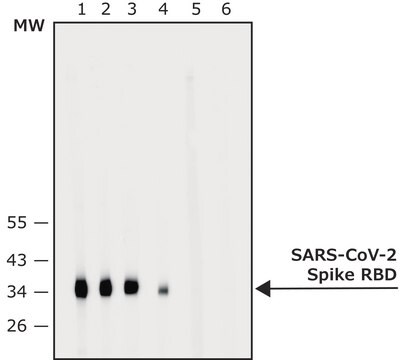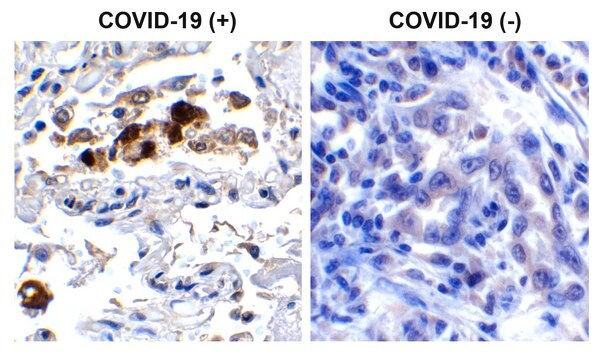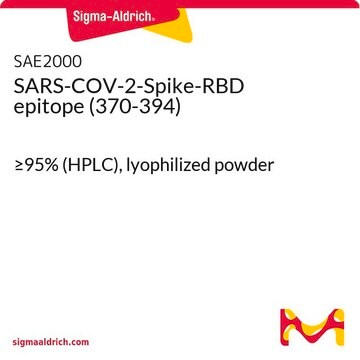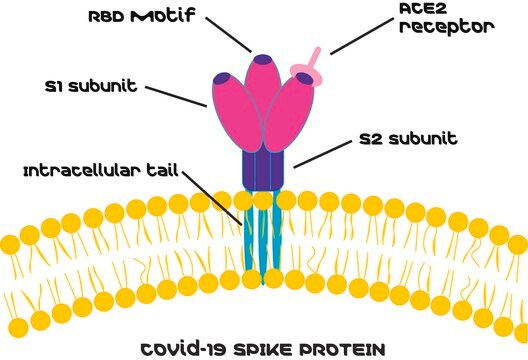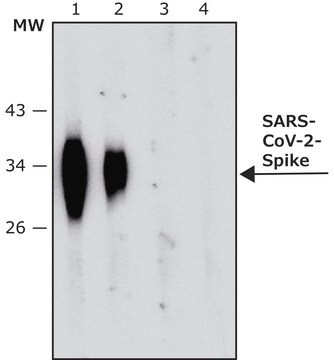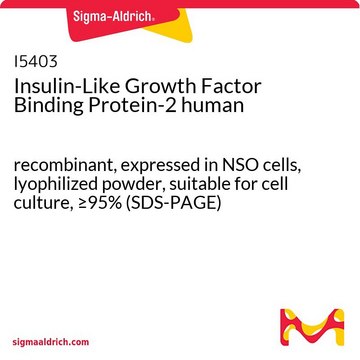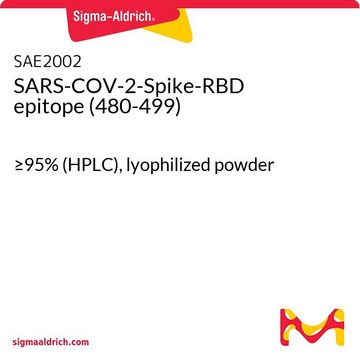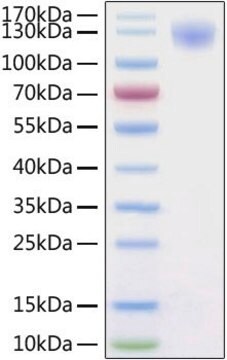About This Item
Neutral
WB
neutralization: suitable
western blot: suitable
Recommended Products
biological source
rabbit
Quality Level
conjugate
unconjugated
antibody form
purified antibody
serum
antibody product type
primary antibodies
clone
polyclonal
mol wt
calculated mol wt 139.13 kDa
observed mol wt ~38 kDa
purified by
(Unpurified)
species reactivity
virus
packaging
antibody small pack of 100 μL
technique(s)
ELISA: suitable
neutralization: suitable
western blot: suitable
epitope sequence
N-terminal half
Protein ID accession no.
UniProt accession no.
shipped in
dry ice
target post-translational modification
unmodified
Gene Information
vaccinia virus ... s> S(43740568)
General description
Specificity
Immunogen
Application
Evaluated by Western Blotting with recombinant RBD of SARS-CoV-2 spike protein.
Western Blotting Analysis (WB): A 1:1,000 dilution of this antibody detected RBD of SARS-CoV-2 Spike protein.
Tested Applications
ELISA Analysis: A representative lot detected SARS-CoV-2 spike protein RBD domain in ELISA applications (Ravichandran, S., et. al. (2020). Sci Transl Med. 12(550):eabc3539).
Neutralizing: A representative lot neutralized SARS-CoV-2 virus in Neutralizing applications (Ravichandran, S., et. al. (2020). Sci Transl Med. 12(550):eabc3539).
Note: Actual optimal working dilutions must be determined by end user as specimens, and experimental conditions may vary with the end user
Physical form
Storage and Stability
Other Notes
Disclaimer
Not finding the right product?
Try our Product Selector Tool.
Storage Class Code
10 - Combustible liquids
WGK
WGK 1
Flash Point(F)
Not applicable
Flash Point(C)
Not applicable
Regulatory Listings
Regulatory Listings are mainly provided for chemical products. Only limited information can be provided here for non-chemical products. No entry means none of the components are listed. It is the user’s obligation to ensure the safe and legal use of the product.
JAN Code
ABF1064-100UL:
ABF1064-25UL:
Certificates of Analysis (COA)
Search for Certificates of Analysis (COA) by entering the products Lot/Batch Number. Lot and Batch Numbers can be found on a product’s label following the words ‘Lot’ or ‘Batch’.
Already Own This Product?
Find documentation for the products that you have recently purchased in the Document Library.
Our team of scientists has experience in all areas of research including Life Science, Material Science, Chemical Synthesis, Chromatography, Analytical and many others.
Contact Technical Service